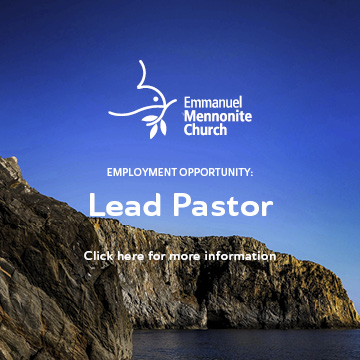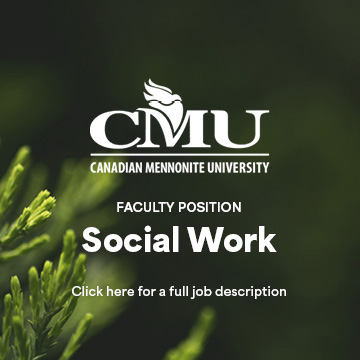In her book The Spirit Catches You and You Fall Down, Anne Fadiman describes an autobiography that eighth-grader May Lee completed for school. Lee, a Hmong girl living in California’s Merced county, recalls fleeing war-stricken Laos in 1979 to reach refugee camps in Thailand. Lee writes of her family’s experience walking for days on end, carrying everything they had with little food, and bullets flying around them. I have heard similar stories from many in the Hmong community.
The teacher’s response at the end of the essay is heartbreaking, yet not atypical of the average North American. “You have had an exciting life!” she writes, “Please watch verbs in the past tense.” To describe the experience of the Lee family, along with that of the 150,000 other Hmong who fled to Thailand, as “an exciting life” demonstrates how far removed our culture is from the tumultuous experience of refugees and immigrants.
As a church in Canada, where some 25,000 refugees flee each year, we can no longer assume our neighbour’s story is the same as ours. We ought to consider it part of our spiritual duty to listen to those who in cultural transition struggling to develop a sense of identity.
I am in one sense both a product of the immigrant experience and, like Lee’s teacher, increasingly removed from it. My maternal and paternal grandparents emigrated from Holland to rural Ontario following the Second World War. They struggled to learn English and worked to support their families by farming. Three generations later, I live in a large urban centre, speak only English, and know only the most basic details of my history.
Those tensions that accompany cultural transition have marked my upbringing and my work as a pastor within the Hmong community of Kitchener and Waterloo. I still remember as a child trying to talk to some of the older members of our church for whom English was a second language, and awkwardly mouthing the words (which I couldn’t understand or pronounce) of the old Dutch hymns. I wasn’t sure exactly where I fit in. All I knew was that I shared that story, and yet had a story of my own.
Similarly, the Hmong children, youth and young adults I work with, struggle to find a sense of place, having experienced both strong social and familial ties within their community as well as a profound loss of a cultural identity in an English-speaking environment. My friends are, like myself, both a product of the immigrant and refugee experience and increasingly removed from it. And while they struggle to find a sense of identity, they share in a cultural story that needs to be heard.
The reality is that three years ago my reaction probably would have been similar to that of May Lee’s teacher. Had I not had opportunities to sit down with people who have been forced to flee from their country I would have just assumed their story was the same as the next person’s.
I ate lunch with one of my Chin friends a few months ago, and he told me how his family paid someone to smuggle them across the Burmese border, and how they travelled through four countries before arriving in Canada. A few weeks later one of the women from our congregation told her story, which included walking for what seemed like forever from Laos to the refugee camp in Thailand.
Seeking to understand where our neighbours come from allows us to grow together as the body of Christ, made up of limbs pulled from every corner of the earth. More than that, it allows us to reach out to the world around us as a church commissioned to preach the Gospel and work for peace.
As a community we are vocal about the fact that our identity in Christ supersedes any ethnolinguistic categories that could divide us, and that questions of salvation and spiritual growth take priority over concerns for preservation of language and cultural tradition.
The love we share, however, compels us to a sustained presence, and a commitment to listen to the stories of strangers. We all carry histories with us. Increasingly, our neighbours carry them from places further than we have. Let’s take time to listen.
Nick Schuurman works as Pastor of Youth and Young Adults at First Hmong Mennonite Church in Kitchener, Ontario.




Add new comment
Canadian Mennonite invites comments and encourages constructive discussion about our content. Actual full names (first and last) are required. Comments are moderated and may be edited. They will not appear online until approved and will be posted during business hours. Some comments may be reproduced in print.